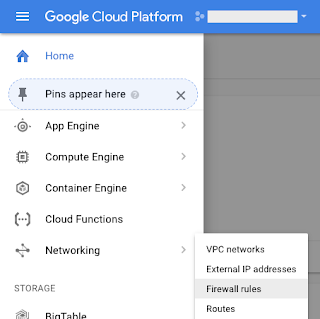Setting up R Studio Server on Google Compute Engine

For many data scientists, R is a must-have tool for running all kinds of data analyses. And many of them would prefer to use R Studio Server to take advantage of server-level machine specifications (e.g. access more RAM memory than a desktop computer would provide) and allow for collaboration with colleagues and peers. The good people at rocker-org can help you get up and running with R Studio Server using a Docker container . But if you want to setup R Studio Server from scratch on Google Compute Engine, then you can follow this guide. Recipe to run R Studio Server on Google Compute Engine (with screenshots) Set up a Compute Engine VM instance in Google Cloud. Install R Studio Server. Create users and groups. This recipe assumes that you have a Google Cloud account already. If not, create one with billing enabled. Then create a project, if one hasn't been created automatically. 1. Set up a Compute Engine VM instance in Google Cloud Actually, before setting up the V...
